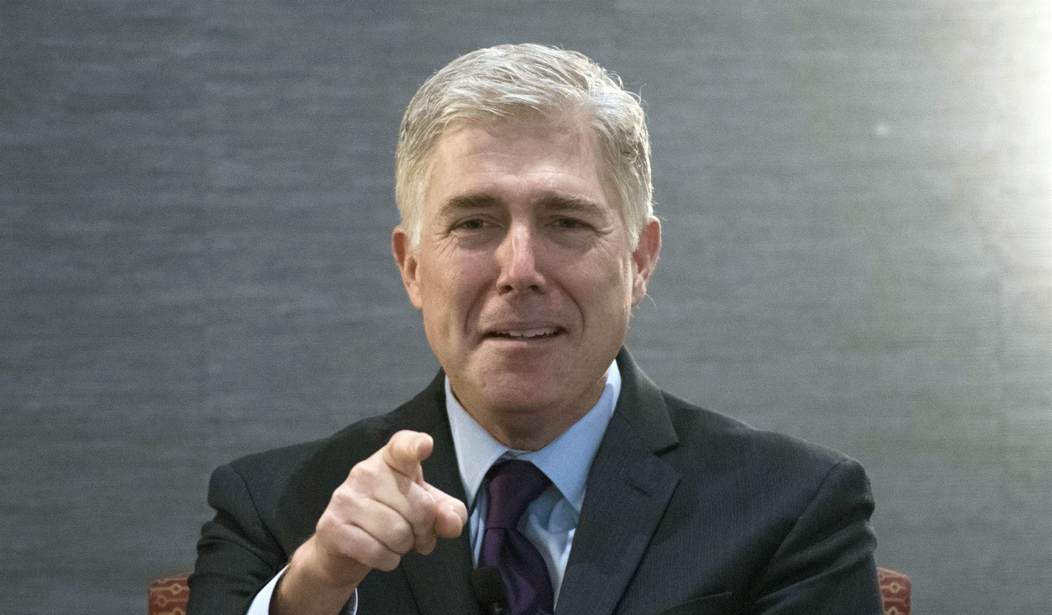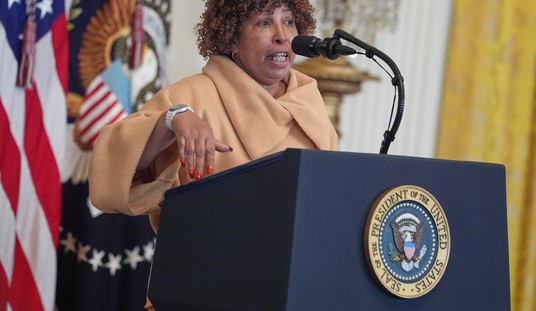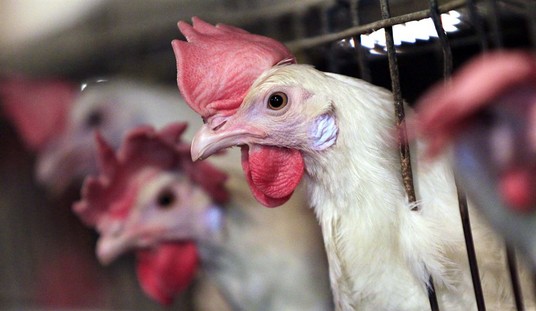Yesterday, the Supreme Court kicked two decisions by Obama-appointed judges back for “reconsideration” in light of the Supreme Court’s decision in Roman Catholic Diocese of Brooklyn v. New York. At issue were decisions originating in New Jersey (that would be the state where the governor dines in close quarters in a restaurant while he sends out the Staats Polizei to break up Jewish funerals) and Colorado, which have established “public health emergency” rules that make it easier to shop at Costco or buy liquor than to attend worship. (The judges were Raymond P. Murphy in Colorado and Claire C. Cecchi in New Jersey.) This is how SCOTUSBlog described the cases:
High Plains Harvest Church came to the Supreme Court on Dec. 4, after the U.S. Court of Appeals for the 10th Circuit rejected the church’s request to block the limits while the church pursued its appeal. The church contended that public health orders issued by Colorado Gov. Jared Polis (D) and Jill Ryan, the director of the state’s public health department, unfairly limit in-person attendance at houses of worship to 50 people, regardless of the size of the building, while allowing many secular businesses to operate without any attendance limits. The state’s actions violated the Constitution’s free exercise clause, the church alleged, noting that the exemptions in the public health orders were, “for practical purposes, indistinguishable from the exemptions that led the Court to enjoin” the New York restrictions last month. Moreover, the church continued, the state violated its right to free expression by allowing Black Lives Matter protests while limiting attendance at worship services.
….
The court granted similar relief – but this time without any recorded dissents – in the New Jersey case, which involves state rules that generally limit attendance at houses of worship to the smaller of 25% of capacity or 150 people. One of the plaintiffs, a Roman Catholic priest, complained that the restrictions allowed him to hold in-person Mass for only about 20 members of his 175-person congregation at a time, even though the church, located in North Caldwell, New Jersey, holds 100 people. As in the Colorado case, the challengers – who also include a rabbi who presides over a synagogue in Lakewood, New Jersey – contended that the attendance limits treat religious gatherings less favorably than secular activities, in violation of their First Amendment rights.
The New Jersey plaintiffs also challenged the state’s mask mandate, which generally requires that masks be worn indoors. The plaintiffs said the mandate treats religious groups less favorably than secular groups because the mandate contains exemptions for secular purposes – such as eating and health reasons – but allows only momentary removal of masks in religious settings.
Here are the key parts of this as I see it.
The conservative majority on the Supreme Court is pretty serious about saying that churches, synagogues, covens (got to include the Methodists), etc., cannot be forced to operate under more stringent rules than secular institutions. The fact that the same majority that ruled in the Archdiocese of Brooklyn case held firm and added the ever wobbly Cheif Justice Roberts is a good sign. Read our coverage on that case BREAKING: SCOTUS Rules 5-4 to Grant Catholic Diocese, Orthodox Jews’ Request to Block Cuomo Attendance Limits, and Low-Wattage Justice Sotomayor’s Attack on the Bill of Rights Makes Her the Left’s New Supreme Court Bobblehead. What was notable about that case was that the concurrence by Neil Gorsuch that belittled John Roberts’s stance on religious freedom signaled that the Chief Justice was on the verge of being irrelevant to the conservative majority.
The Supreme Court has also shut the door on the tactic used by some governors of imposing a draconian and unconstitutional order, and when it looks like their order may be tossed out by a non-Obama judge, they rescind the order and claim the issue is moot. When the case is dismissed, they reissue a new order. Wash. Rinse. Repeat.
Though I am not a lawyer, one interesting aspect of the New Jersey case was something we’ve poked a lot of fun at on the internet. The rules being churned out are arbitrary and stupid. Why set a 10 p.m. curfew? Does the virus just come out at night? Why did Pennsylvania ban the selling of liquor on Election evening…other than because the bizarre creature who runs health policy for that sad and unfortunate state had the power to do it? The New Jersey church points out that you can sit down in a restaurant without wearing a face diaper, but you can’t sit down in church without one. Does eating make you resistant to the virus? I really hope more challenges arise to the conditions set by public health nazis around the country as well as those in CDC and that we start knocking the blocks out from under this entire anti-science regime.
On the whole, this was a solid victory for the proposition that attending church is not inferior to other forms of activity and the reversal of the anti-freedom direction in which Roberts was steering the court since the first cases challenging the virtual outlawing of religious gatherings bubbled up this past summer:
A divided Supreme Court on Friday night turned down a request by a Nevada church for permission to hold services on the same terms that other facilities in the state, including casinos, are allowed to hold gatherings during the COVID-19 pandemic. Chief Justice John Roberts joined the court’s more liberal justices in denying the plea from Calvary Chapel Dayton Valley, a Christian church located about 15 miles outside the state’s capital, Carson City. The ruling drew sharp dissents from the court’s more conservative justices, with Justice Samuel Alito writing that although the “Constitution guarantees the free exercise of religion,” it “says nothing about the freedom to play craps or blackjack.”
…
In late May, the Supreme Court – with Roberts again joining the four more liberal justices – rejected a request by a church in southern California for an order that would have allowed it to hold services. The church in that case, South Bay United Pentecostal Church, argued that state and county shutdown orders discriminated against houses of worship by requiring them to remain closed while allowing retail stores, offices, restaurants and schools to remain open.
These decisions, in my view, don’t go far enough. The idea that the government, by the mere order of an unelected functionary, can shut down churches is antithetical to the American experience. The Supreme Court needs to move beyond the “if they do it to Costco, they can do it to you” rule to a handling stance that says the state cannot, under any circumstance, regulate church attendance.













Join the conversation as a VIP Member